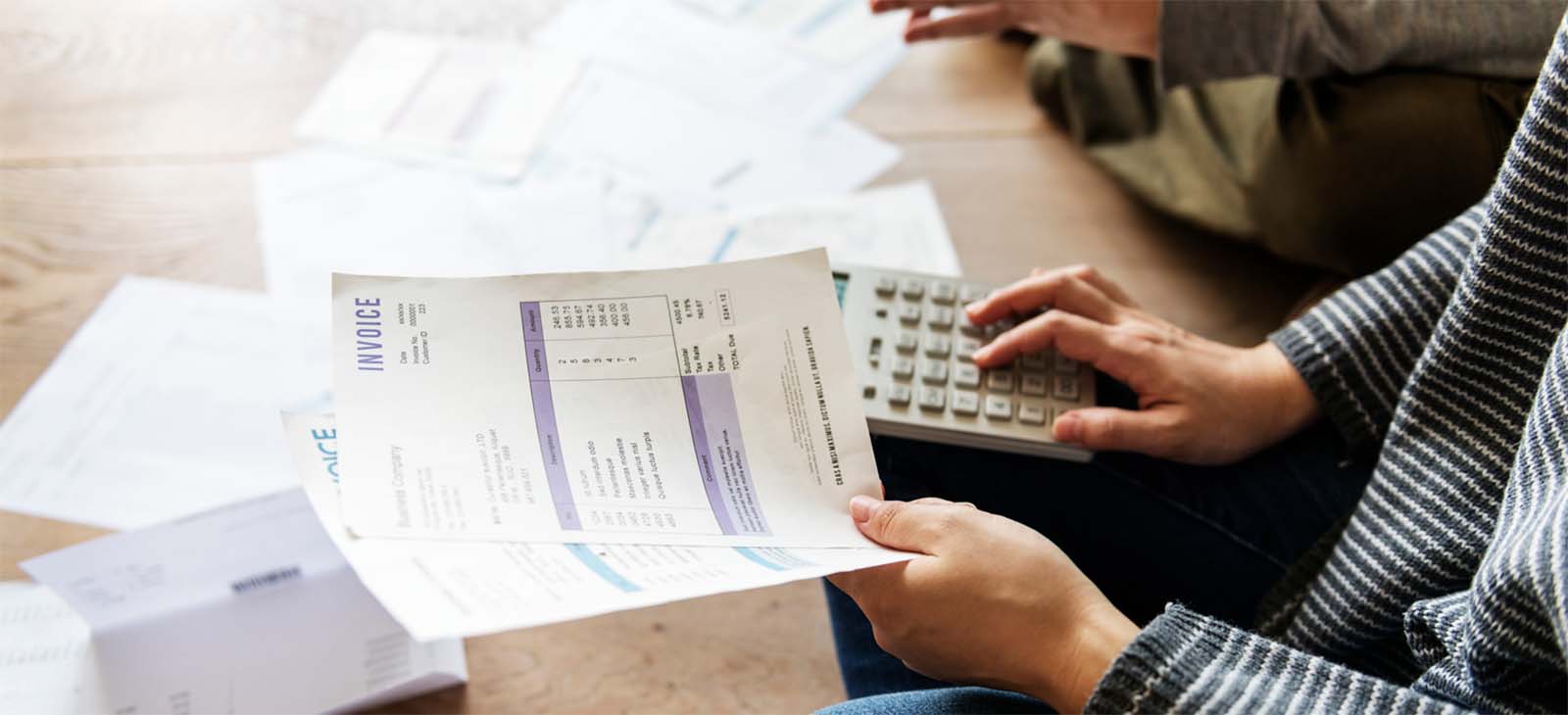When looking towards a debt management plan (DMP) it is sensible to be aware of the type of debts you can and cannot include. While ultimately it will be down to the creditors to include their debts in an agreementent, this informal arrangement can still prove very useful. As we will cover, there are variations to the rule but generally, it is only unsecured debts which you can include. Secured debt would be secured against some form of asset, or a personal guarantee, therefore, in theory, the funds are recoverable.
Do I have to include all debts in a debt management plan?
The simple answer to this is, no. As a DMP is an informal arrangement it is up to each individual creditor as to whether their debt will be included in your repayment plan. If we put aside secured debts, if you are struggling with repayments for then it would be sensible for a creditor to consider joining the agreement. In reality, if they failed to join your repayment plan you can still make alternative arrangements for reduced payments, aside from your plan commitments, while you try to repair your finances.
What debts can be included in a DMP?
In theory you can include an array of different unsecured debts in a DMP such as:-
- Credit cards
- Personal loans
- Store cards
- Bank overdrafts
- Catalogue
- Gambling (slightly complex)
If you’re able to negotiate a debt management plan then normally interest and charges on debts within the plan will be frozen for a period – however, this is not guaranteed. When negotiating a DMP all of the credit accounts included will be closed.
What about credit card debts?
It is extremely easy to build up credit card debt, purchasing a number of items and services such as:
- Holidays
- Christmas presents
- Birthday gifts
- Clothing
- Socialising
One thing to bear in mind with regards to credit card debts is the person named on the main credit card account. For example, Mrs Jones may be the named account holder of the credit card account and she may have arranged for Mr Jones to have his own credit card. Now, if Mr Jones was to get himself into financial trouble then Mrs Jones would ultimately be responsible as the named account holder. As a consequence, you would not be able to include the credit card debt in Mr Jones’ DMP.

Can you include personal loans?
There is a strict difference between secured and unsecured personal loans and which are normally included in a DMP. As we touched on above, if a personal loan is secured against a property for example, or perhaps there is a guarantor, the creditors have different powers to recover the outstanding sums. This would include repossession of the property and collect from the guarantor in these scenarios.
In reality, it is likely that a creditor for a guarantor loan would pursue the guarantor for the balance if the debtor is unable to repay the loan. The liquidation of assets to pay off an outstanding personal loan would usually be as a last resort, secured lenders would normally try to recoup the arrears by working with the debtor to come to a suitable arrangement. When it comes to unsecured loans the situation is clearer, they are more likely to be included in your DMP.
Can you include store cards borrowing?
There are very few major retailers in the UK who do not offer some kind of store card or credit account. Not only does this act as a means of increasing customer loyalty but it can be very lucrative with high interest rates often charged. Unfortunately, it is relatively easy to build up significant debt on store cards and when the introductory interest rate expires, they can be expensive to finance. As an unsecured debt, joining your DMP may offer the best opportunity to maximise recovery of outstanding funds.
Can you include bank overdrafts?
Bank overdrafts are agreed (and reviewed regularly) when considering an individual’s financial status at the time although this can obviously change. These arrangements can be terminated at relatively short notice leaving customers to seek repayment options. They can be included in your plan because they are unsecured but it is likely that your bank would seek an alternative repayment plan prior to reaching the DMP stage.
Many people heading towards financial troubles may look to move banks to avoid the right of set-off and improve their short term liquidity. In this situation, the overdraft from an unused bank account would likely be included in your agreement.
What about catalogue debts?
In a similar fashion to store cards, catalogue debts can get out of control fairly quickly once a payment has been missed and penalty/interest charges have been added. However, if you are experiencing financial difficulties, as an unsecured debt, catalogue debts can be added to your DMP. The freezing of interest and additional charges will offer significant assistance in the short term while you attempt to regain your financial status.
Can you include gambling debts in a DMP?
The subject of gambling is a little more complex than you might automatically assume. While you may have lost significant funds from gambling the likelihood is that these were funded by a bank overdraft or credit cards (gambling companies don’t offer credit). As a consequence, the debt in this scenario would be to a bank/credit card company. As this type of debt is unsecured it could be included in your DMP assuming your creditors agree.
In the event that you have experienced some form of gambling addiction and built up significant debts, it is vitally important to address these issues so they can be avoided going forward. Creditors would not look kindly on an individual looking to arrange a DMP who continued to gamble. As of April 2020 the UK government has banned gambling companies from accepting credit cards as a source of client funding.

Can council tax arrears be included in a debt management plan?
When it comes to council tax arrears it is highly unlikely that you would be able to include these in a DMP simply because your local council would push for any arrears to be repaid relatively quickly. If you find yourself in financial trouble and your council tax arrears are starting to mount, the council would likely be receptive of a separate repayment plan. While this would not impact your council tax arrears, going forward you may qualify for a council tax reduction or financial assistance.
Can rent arrears be included in a debt management plan?
In a similar fashion to council tax, it is very unlikely that you would be able to include rent arrears in your DMP. Whether your landlord was the local council or a private landlord it is unlikely they would to be willing to join a DMP simply because of the extended repayment timescale – they are also classed as a priority debt.
There may be opportunities for reductions or government financial assistance going forward but this would not impact any arrears. However, if the rent arrears were from a previous tenancy with a different property/landlord then they would be classed as non-priority and could be included in a DMP.
Can you add CCJ debts to a debt management plan?
It is highly unlikely that you would be able to add a CCJ agreement to your debt management plan simply because an additional repayment plan has already been agreed by the courts.
Can HMRC debts be included?
As with council tax and council rent, it is highly unlikely that you would be able to include any form of HMRC debt in a DMP. Whether this was VAT, personal tax or any other outstanding payment, it is unlikely that HMRC would be willing to work under the traditional timescale of a DMP. There would be an opportunity to arrange an additional repayment plan with HMRC but in the event this was not possible they may take additional action to recover debts.
Can you add debt?
In theory, there is nothing to stop you adding additional debts to your DMP going forward and simply sharing out your disposable income amongst your extended group of creditors. However, in reality, this can be very different! As it is an informal arrangement, your original creditors would likely receive reduced payments and may view this as a quasi “deferral” on your original agreement. As a consequence, they may decide to remove themselves from the plan and take their own action to recover outstanding funds.
Final Words
In theory, it is possible to place any unsecured debts into a DMP but where it has been secured, with collateral or a guarantor, your creditor also has the option to pursue payment in full. There are exceptions to the unsecured debt rules such as council tax, rent and money owed to HMRC.
There may be some resistance from existing creditors where additional debts are added to your DMP after the original plan was agreed. Exceptions to the rule may include a vehicle on HP which would have been a priority debt when the plan was set-up. However, if you fell behind with contractual payments and the vehicle was repossessed this would be different. Any shortfall would then be added to your DMP with little resistance from other creditors – in effect it was an existing financial obligation when the DMP was agreed.
However, where someone was to take out a new credit arrangement after the commencement of a DMP, default and then try to add the debt, this would not be so well received by other creditors. They may see this as a form of preferential treatment and could then withdraw from the agreement and take action in their own right to recover debts. This, in turn, could have repercussions for the continuation of the plan and may bring other actions such as bankruptcy into play.

